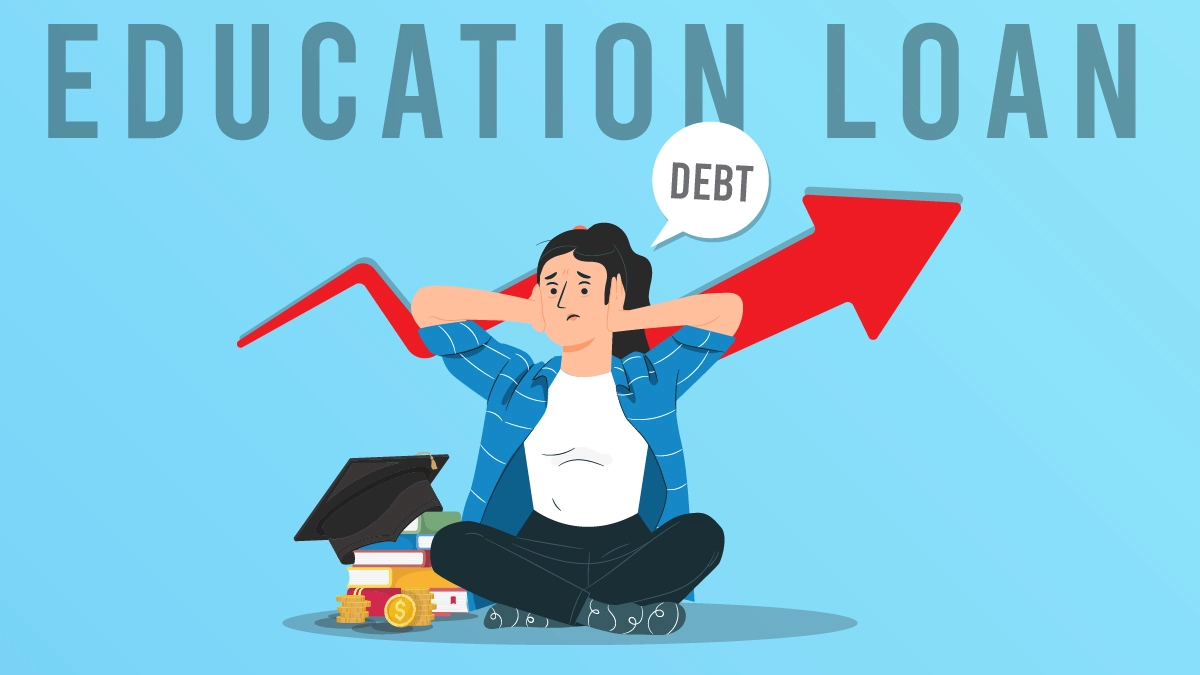https://www.wemakescholars.com/blog/education-loan-repayment-an-overview
Education Loan Repayment in India: Terms, Strategies & Tips
Education Loan Repayment | Updated

To be able to manage the repayment of education loans efficiently, it is vital to understand how education loans work in India and also the education loan terms and conditions. In this article, you’ll learn everything you need to know about student loan repayment.
How Does an Education Loan Work?
- Student Loans in India provide students with funding of up to Rs 2 crores to pursue their education.
- The education loan tenure and repayment can go up to 15-20 years in total including the moratorium period.
- The moratorium period, which is an essential part of how student loans operate in India, provides the student with an opportunity to postpone the EMI payments until after the course is over, which helps avoid immediate pressure on the financial situation.
- Furthermore, the government of India also provides student loans, which have better repayment terms in comparison to private lenders
- The repayment period begins once you start paying either interest or direct EMIs towards your abroad education loan to the lending bank. Your moratorium period may or may not come under a repayment period depending on whether you are paying anything during the period to the bank or not.
You can also get all the information straight away from our education loan expert, Ms Damini Mahajan, in the 29th episode of Loanflix, a comprehensive web series on abroad education loans.
There are two choices that students have when it comes to taking abroad education: secured education loans from Government banks and unsecured education loans from private banks and NBFCs. Among the two, it is recommended to always try for a secured education loan from Government banks because of the benefits you get.
Must read- Government Bank Education Loan Benefits for Students- An Overview
Due to the nature of education loans offered by Government banks and private lenders, they have extremely different policies regarding education loan repayment. Before we delve into the details, there is one important concept that all of you should be well aware of - The moratorium period or loan holiday.
What is a Moratorium Period in the Education Loan Repayment Process?
A moratorium period is defined as a gap in the repayment tenure of the loan where students are not obliged to pay the loan EMIs during the period. The moratorium period consists of your course duration plus 6-12 months.
Students can commence their interest payment during this period (this depends on their lender’s policies), however, the EMI payment strictly begins after the moratorium period. Let’s see the terms and conditions laid down by public banks and NBFCs regarding the moratorium period.
Government Bank education loan repayment process
The loan repayment process of Government banks is, in a way, convenient for students due to their flexible repayment terms. When it comes to the repayment process, there are three important phases that you need to know of.
- When does the education loan repayment start?
The primary concern of most of the education loan applicants is regarding the loan repayment period. So here it goes. Most Government banks grant a payment-free moratorium period. The moratorium period in Government banks generally consists of the course duration, plus six to twelve months after the course (this clause is dependent on your lending bank’s policies).
The interest for this period is calculated on a simple interest basis, by Government banks (refer to our article on the Moratorium period for better understanding). The EMI payment is expected to begin at the end of this time in the loan tenure. So, in short, Most Government banks do not ask their loan applicants to begin the repayment process until the moratorium period ends.
- How many years do you get to repay your education loan from Government Banks?
Almost all government banks grant an education loan repayment period of 12 years to 15 years excluding the moratorium period, although students can pay off their loans sooner if they can.
- Are there any benefits of pre-paying the education loan interest?
Till about three years ago, government banks had an education loan repayment support scheme where students get to avail 1% rebate on their interest rates upon regular payment of full interest during the moratorium period.
However, this scheme was called off roughly about two years ago. So if you happen to come across any such terms that mention this scheme, please be aware that no such provision exists! This education loan repayment support scheme is obsolete now. You can now get to know how much amount you are supposed to repay by using the education loan EMI calculator facility available on government banks’ official websites.
Also read- Education Loan EMI Calculator (A Comparison)
The factors mentioned above are extremely crucial to the education loan repayment process of government banks and they will help you in the long run in your education loan process. If you already have an education loan sanctioned and are dissatisfied with the loan terms, you can reach out to us by requesting a callback and we will negotiate a better repayment tenure for you.
Loan Repayment Process of Private Banks and NBFCs
Private banks and NBFCs (Non-Banking Finance Companies) are the biggest lenders of unsecured education loans. Their repayment process is a little different in comparison to that of government banks. While their way of operating is loosely based on the directions of the RBI, NBFCs have customized ways of processing an education loan. Here’s a brief take on how private lenders handle education loan repayment.
- When does the education loan repayment begin in private bank's NBFCs?
Private banks offer a moratorium period on education loan repayment like government banks do but it only consists of course duration plus 6 months. However, unlike government banks, this period is not payment-free. So, ideally, the education loan repayment of private lenders begins once candidates receive the first disbursement of their education loan.
Private lenders require students to make their interest payments during the moratorium period. The good news is that private lenders accept partial payments of interest during the moratorium period. This means that if you are being charged a monthly interest of Rs.10,000 per month during your moratorium period and you are unable to do so, private lenders allow you to pay only Rs.4000 to Rs.5000, depending on their policies.
Depending on the profile, NBFCs may even ask for full payment of interest during the moratorium period or even EMI in very few cases.
- How many years do you get to repay your education loan from Private banks and NBFCs?
Private lenders grant 10 years as the total loan tenure. This period is inclusive of the moratorium period. This is one of the policies which makes education loans from government banks, a much-preferred option for candidates. When your moratorium period is counted as a part of your loan tenure, you end up losing at least 2.5 to 3 years of your loan tenure.
If you have already borrowed an education loan from an NBFC and are not happy with their repayment policies, you still have time. On completion of all your disbursements, you can opt for an education loan transfer process to any of the major government banks.
- What are the steps involved in the repayment of unsecured education loans?
Either the loan applicant or the co-applicant can start the EMI payment of the education loan. Students can request their lenders to set up an auto-debit system from their salary/savings accounts. If your co-applicant plans to avail of an income tax exemption on the education loan interest under Section 80 E, then the EMI payments can be made via their account.
Within how much time should one finish their education loan repayment?
Most students try to repay their education loans as soon as they can. Hence, they opt for smaller loan tenures. At WeMakeScholars, we always advise our students to opt for longer loan tenures. While planning for your education loan repayment, it is extremely necessary to cater to financial contingencies. Students are generally able to repay their education loans as soon as they are employed abroad. However, if this doesn’t happen, then opting for a shorter loan tenure for the student loan repayment process may not work in their favor. Hence, it is always recommended that you opt for a longer repayment term. To get personalized suggestions and negotiation for your education loan, request a callback from us or comment down your query below.



Kindly login to comment and ask your questions about Scholarships & Education Loans